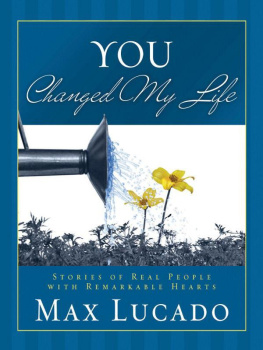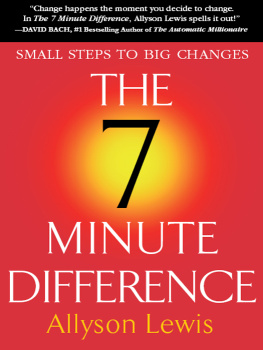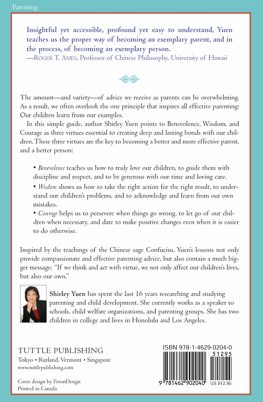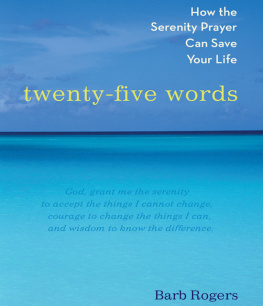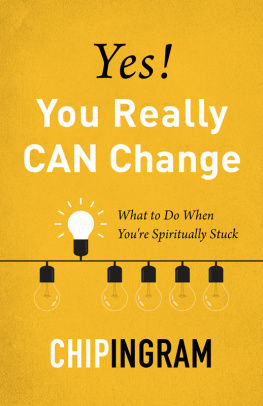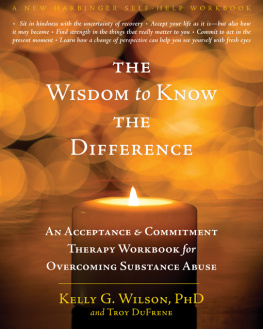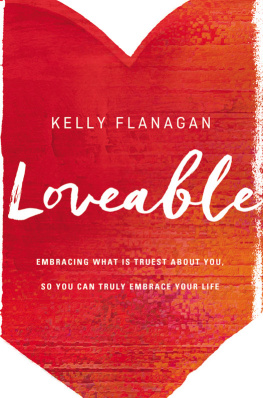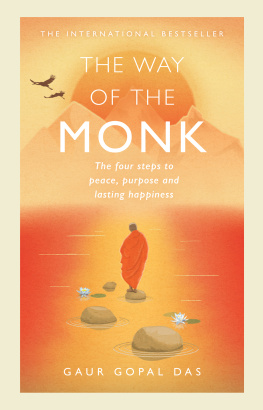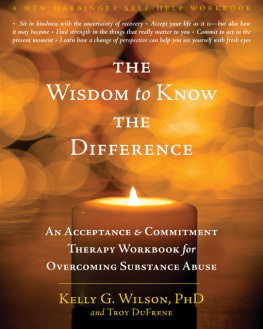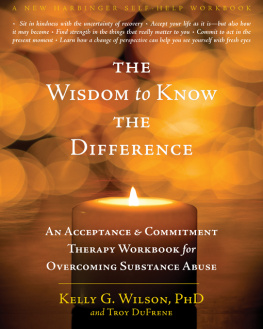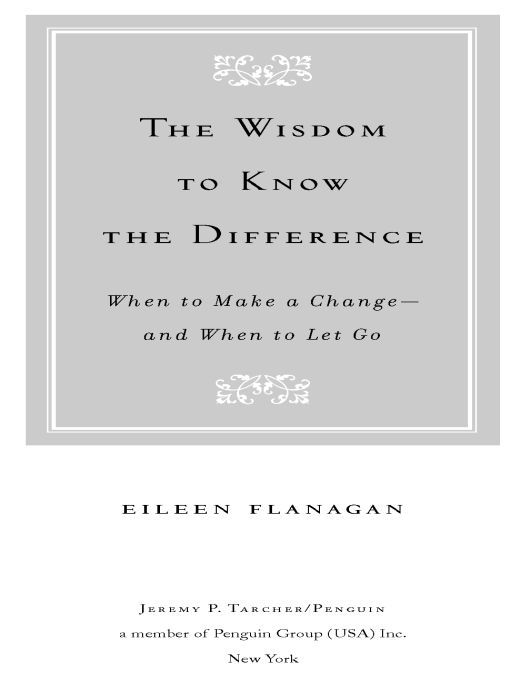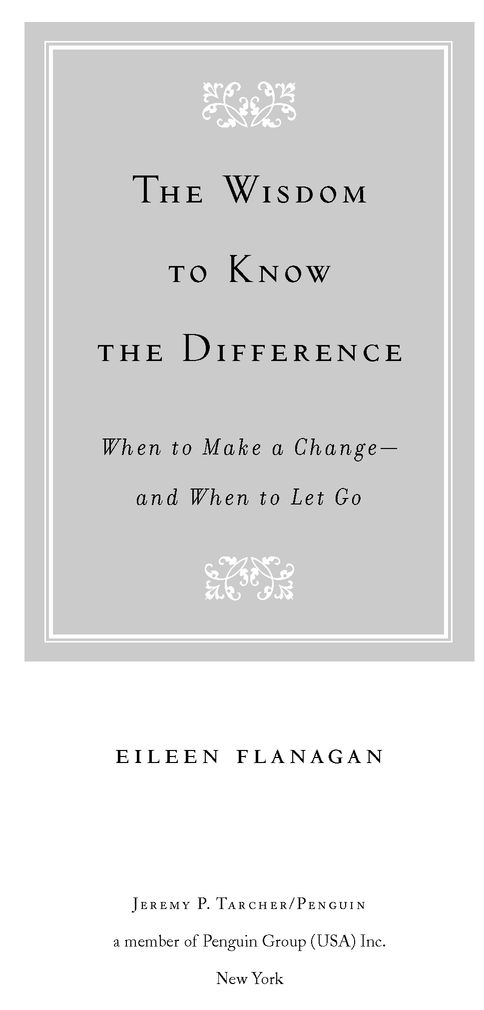Table of Contents
To Megan and Luke,
with love
A NOTE ON THE INTERVIEWS
In some cases the names and identifying details of the interviewees have been changed to protect their privacy or that of other people mentioned in their stories. Although I made a conscious effort to find people of diverse racial and religious backgrounds, I mentioned a persons race or religion only when it was integral to the story being told. When race was relevant, I opted for the labels black and white, although there is still no consensus on which labels come closest to describing the identity of people whose backgrounds are more varied than those labels imply. I use any terms with the understanding that while race is an illusion biologically, it continues to be a reality socially. Many of the people of color whom I interviewed talked about racism as something they needed wisdom to deal with. As a result, the people most likely to be identified by race are people of color, though that does not mean the reader should assume those not so identified are white.
INTRODUCTION
Ive been told that in olden days, fishermen off the west coast of Ireland never learned to swim, believing that if the God of the Sea wanted to take them there was nothing they could do about it. Even if this is a bit of blarney, it rings true to my impression of my Irish ancestors, who were stoic about death, designing patterned wool sweaters so families could identify lost fishermen when the temperamental Atlantic spit them back unrecognizable. Perhaps it was the shifty weather that made the Irish fatalistic, or the centuries of colonialism, or the particular flavor of religion. My mother often repeated the message given to her in school by a strict nun with a thick brogue: You were put on this earth to suffer for the glory of Christ, and the sooner you get used to it the better off youll be. My mother laughed at the nuns message, but I rebelled against it. If I fell off a boat at sea, you can bet Id swim.
I am American much more than I am Irish, and a daughter of the womens movement rather than colonialism. When I went to Catholic school in the late sixties and early seventies, I had idealistic young nuns who taught me to play the guitar and told me I could be anything. My private high school and prestigious college reinforced this message, so I came to expect success, not suffering. When I experienced my first professional failure at twenty-nine, it was a devastating shock, but one that spurred my spiritual growth. Its been part of my faith journey to learn the spirituality of acceptance, realizing that there are times when letting go and trusting are the best I can do. This does not mean adopting the passivity of the Irish fishermen, surrendering my destiny to fate. It simply means recognizing that while I can chart my own course in life, I dont control the sea around my little boat. I cant guarantee that I wont ever get knocked into the waves, though I can learn to swim in case I do. Ive found that recognizing both my power and my powerlessness is useful when facing lifes storms.
My recognition of this paradox began when I became pregnant with my first child. I realized I could not prevent my water from breaking in the supermarket or guarantee that my favorite doctor would be on call when I went into labor. More sobering was the realization that I couldnt guarantee my babys health, no matter how many prenatal vitamins I took. At the same time, my attitude and my choices
did matter, so I tried to do all the right things. I drank milk instead of coffee and juice instead of wine. I stopped volunteering in a prison because it exposed me to secondhand smoke and took a day-long retreat in the woods to calm my spirit. I knew intuitively that worrying about the baby wouldnt be good for either of us, so I began meditating on the Serenity Prayer, the most famous version of which says:
God grant me the serenity to accept the things I cannot change
Courage to change the things I can change,
And wisdom to know the difference.
The prayer summed up what was for me the major predicament of pregnancy: learning when to passively trust in God (like when I first passed my due date) and when to take action myself (like when my pregnancy went so long as to put the baby at risk and my doctor recommended labor-inducing drugs). The challenge of childbirthlearning when to push and when to just relax and breatheseemed a fitting metaphor for many other human dilemmas as well.
The same issues were illustrated by my parents deaths. When my father was dying after years of heart and lung disease, frantic specialists plugged him into more and more machines, even though his mind and heart were shutting down. They did not know when to stop. Their reluctance to accept what they could not change (combined with my fathers lack of an advanced directive expressing his wishes) only increased my fathers suffering in the end. On the other hand, I also cared for my aging mother, who at one point gave up on life prematurely, suffering unnecessarily for a week before I persuaded her to go to the hospital. I learned that, although we cannot fight death forever, there are times when were meant to use the power weve been given to save ourselves or someone else. To use the metaphor of the Irish fishermen, there is nothing wrong with swimming when we go overboard or throwing a drowning man a rope, though trying to control the sea is as good a way to drown as doing nothing at all.
The wisdom to know the difference between what we can and cannot change is central to my definition of a well-lived life. When we accept our circumstances, we spare ourselves frustration and anxiety, though we suffer needlessly when we put up with what we shouldnt. Too often, however, we get the equation backward. We feel anxious about not having a perfect figure, while snacking on unhealthy food. We obsessively check the balances of our retirement accounts, while spending money on things we do not need. We try to change other people, instead of changing ourselves. When we get the equation right, putting our energy where it can do the most good, our lives are less stressful and more meaningful. We have more time to make a difference in the world when were not wasting it on fruitless complaints.
Unfortunately, few voices in our culture help us to develop this wisdom. A glance at the bookstore shelves reveals the problem. On the one hand, most self-help authors preach taking control, arguing that you can become rich or married or thin or smart if you just have the right attitude. One book sums up the self-help creed in capital letters: IF YOU KNOW WHAT YOU WANT, YOU CAN HAVE IT. But what if I want my father to be alive again? What if I want world peace? Knowing what I want will help me to write a book or win an Olympic medal, but it is not always enough. Religious books generally do a much better job of promoting acceptance and serenity, but many go too far the other way, encouraging readers to accept their suffering as unchangeable, even God-given. A few of the Christian books on marriage make sexism sound like a divine gift intended to teach women patience.
The Wisdom to Know the Difference is a different kind of spiritual book, one that argues that it is important to distinguish between letting go and giving up. On the one hand, this book rejects the idea that God decided your lot in life long ago, so if you are poor, or sick, or in a bad marriage, it is because you were put on this earth to suffer, as my mothers teacher put it. That theology may lead to surrender, but not serenity. It certainly will not empower you to eat well, get marriage counseling, or ask for a raise when one is due. On the other hand, this book also rejects the recently popular pseudospirituality that claims that the universe is a vending machine at your command and you can have whatever you want if you just visualize it, an approach that tends to focus people on their material wants rather than on wisdom.


